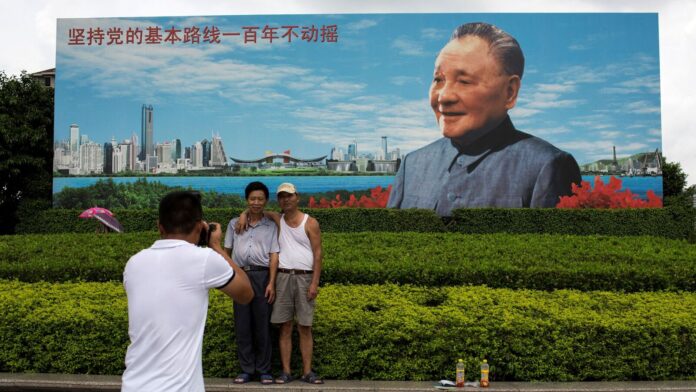DENG XIAOPING was barely five feet tall, but China’s late ruler was a political giant. He was a leading figure in the Communist revolution and a hard-nosed Leninist. Yet, as ruler, he launched market-oriented reforms and opened China up to the world. On August 22nd, the 120th anniversary of Deng’s birth, China’s current leader, Xi Jinping, lauded his “extraordinary life”.
As if grabbing Deng’s mantle, Mr Xi also said that China should deepen its commitment to the reform-and-opening agenda. That has led to grumbling from many observers. Much of what Mr Xi has done during his 12 years in power flies in the face of Deng’s legacy.
Deng’s most important reform was to reduce the role of the state in the economy and encourage private enterprise. The party should allow “some people to get rich first”, he said. Compare that with Mr Xi, who has reined in market forces and reinstituted a state-dominated growth model. His “common prosperity” campaign aims to chasten billionaires and reduce inequality.
Differences between the two leaders can also be seen in the political realm. Deng called for separation in the functions of the Communist Party and the government. He also extolled the notion of “collective leadership”, with big decisions made by consensus. Mr Xi, in contrast, has reimposed one-man rule. The party, meanwhile, is an ever-growing presence in everyday life.
When Deng was in charge, China was still poor and relatively weak. So, in foreign affairs, he argued for keeping a low profile. Now China is more powerful—and Mr Xi more assertive. Deng’s eldest son, Deng Pufang, made headlines in 2018 with a speech that was widely seen as an attack on Mr Xi’s increasingly ambitious foreign policy. China should “know its place” in the world and not be “overbearing”, he said.
In one area, at least, Mr Xi is aligned with Deng. The late ruler reportedly thought Mikhail Gorbachev was an “idiot” for allowing the Soviet Communist Party to lose its grip on power. In 1989, when confronted with big pro-democracy protests in Tiananmen Square, Deng ordered troops to crush the demonstrations, at the cost of hundreds if not thousands of lives.
Chinese leaders seldom talk about that episode. But Mr Xi made an exception in his remarks on August 22nd. “At the critical juncture, Comrade Deng Xiaoping led the party and the people to stand firmly against turmoil and resolutely defend the power of the socialist state.” Few doubt that Mr Xi, if faced with a similar challenge to the party’s rule, would act as forcefully.
© 2024, The Economist Newspaper Ltd. All rights reserved. From The Economist, published under licence. The original content can be found on www.economist.com
#Jinping #envious #predecessor
